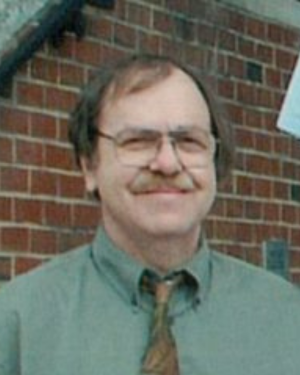
One of our retired faculty members, A. Joseph D’Ercole, died peacefully on December 21st, 2023, after a brief but rapidly progressing illness. Joe (as everybody around him affectionately called him) came to the University of North Carolina in 1974 as a postdoctoral fellow in Pediatric Endocrinology. After completing his fellowship training, he stayed at UNC as a clinician, mentor/teacher, and investigator. His great interest in the neonate led him to focus on the role of hormones and growth factors in the control of fetal growth. In pursuit of this interest, Joe undertook formal training in Neonatology and subsequently joined the faculty in Neonatology as well as in Endocrinology. In effect, he founded a “School of Perinatal Endocrinology”.
His pivotal contribution was to provide the first conclusive evidence that IGF-I is made in multiple tissues and acts on its target tissues by both autocrine and paracrine modalities. This finding opened the door to questions about the role of IGF-I in virtually every tissue in the body. Joe later became one of the pioneers in developing genetically altered mouse models. Using IGF-I transgenic mice (using both overexpressed and knockout phenotypes), he made the seminal observations that overexpression of IGF-I leads to larger than normal brains, while its reduced action leads to smaller than normal brains.
These studies led to a long series of remarkable studies on the role of IGF-I in the myelination and growth of the brain. Joe pursued these now classic studies by retooling in the science of developmental neurology. For many of us, we learned simply by watching him enter an entirely new arena and establish himself as a leader in it, in this case, the study of IGF-I in neural development. His contributions and extraordinary work ethic have also resulted in continuous funding from NIH for his entire professional career, an accomplishment that few have achieved.
Joe became the Chief of the Division of Pediatric Endocrinology and the head of postgraduate training program in endocrinology in 1998 and served in this role until his retirement in 2011. This program had been continuously funded by the NIH since 1962 and has been recognized as one of its most successful training programs, with well over 200 individuals having received training in this program. As Chief of the Division of Endocrinology, he showed great leadership in maintaining its international reputation as one of the premier divisions of Pediatric Endocrinology with a strong basic science component, while strengthening its clinical contributions to patient care and teaching.
It is virtually impossible to count fully for the number of pediatric fellows and faculty that Joe inspired, brought into his research circle, trained, and then delivered into the world to inspire others. He mentored individuals in a broad cross-section of pediatric subspecialties (Pulmonary, Gastroenterology, Hematology-Oncology, Endocrinology and Neonatology), and in doing so, has created bridges for pediatricians at UNC with departments around the world. Through the success of his research and NIH funding, he provided the Department of Pediatrics with a basic research laboratory where postdoctoral fellows and PhD faculty were taught the fundamentals of molecular biology as well as cutting-edge technologies, thereby facilitating generations of rising academicians and scientists.
One way in which to gauge the success of his pioneering research, contagious enthusiasm, and his ability to foster others as a role model is by viewing the accomplishments achieved by his former trainees. Many of the alumni of his lab and training program received faculty appointments at major national and international research centers, such as the Karolinska Institute, the University of Ankara, University of Tokyo, University of Seoul, University of Patras, Instituto de Investigaciones Biomédicas UNAM, University of Cincinnati, University of Colorado, University of Washington, and Vanderbilt University.
Although Dr. D’Ercole is internationally known for his basic research, he is locally known for his expertise and compassion in the care of children. In this regard he has mentored hundreds of students, residents, fellows, and staff in clinical care, and he has taught the importance of thorough assessments, careful deliberation, and excellent communication with, and advocacy for, his patients. Dr. D’Ercole’s’ legacy will live on through his scientific discoveries, trainees, and his incredible impact on so many families. He will be missed.
